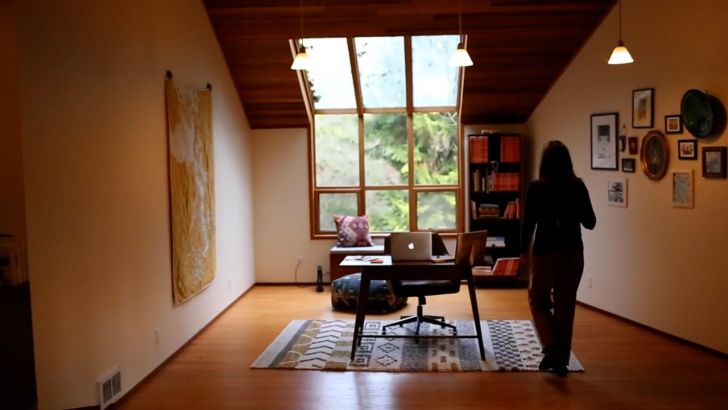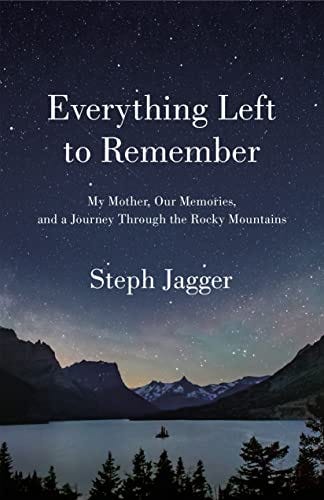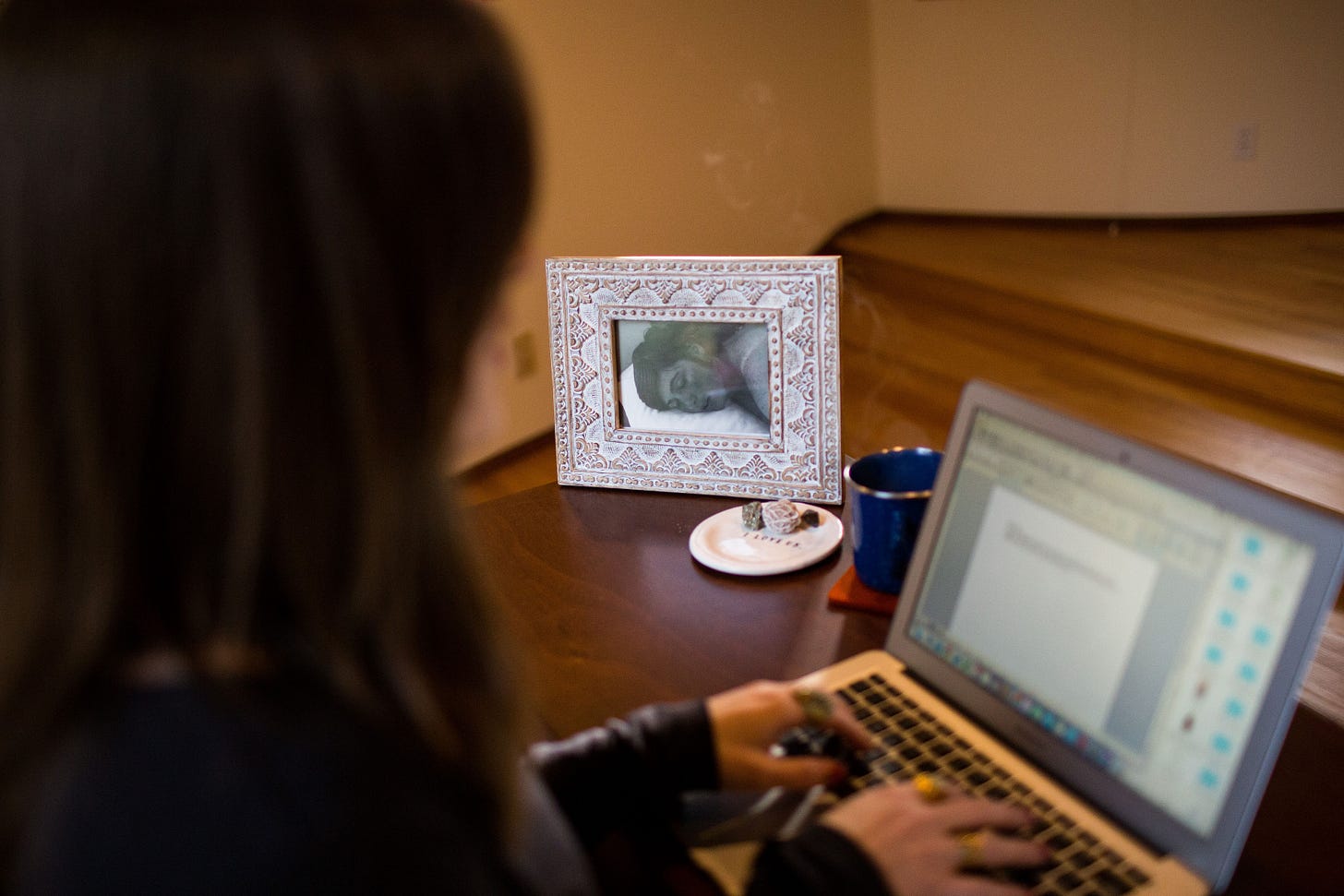As above so below
5 questions for Steph Jagger, author of a new book on dementia, motherhood, lineage, and nature
Current estimates are that about 5.8 million people in the United States have Alzheimer’s disease and related dementias, including 5.6 million aged 65 and older and about 200,000 under age 65 with younger-onset Alzheimer’s. And yet, it’s rare to see public depictions and discussions of this widespread disease. Most recently, This Is Us, a beloved family drama has been exploring how the disease impacts families and it’s worth a watch. But if you look for other sources—books, movies, podcasts—it’s not easy to find any that are artful, and—for lack of a better word—complexly hopeful. That’s why I was excited when I hard about Steph Jagger’s new memoir, Everything Left to Remember. It’s a book about a daughter’s journey—both literally and metaphorically—with her mother, a book about recontextualizing the lives of our mothers as we become adult daughters, a book about memory and loss and nature and presence. I found it quite beautiful and moving, and relatable in so many ways behind the specific diagnosis her mother has. It’s a book about how we spend our time with the people we love, the conversations we have (or don’t), the meaning we make.
Without further ado, meet Steph…
Courtney Martin: Did you go on this road trip intending to write about it?
Steph Jagger: Writing is the way I process emotions, the way I understand the world around me including myself within it. Because of that, I knew I would write about the trip. That said, I didn’t know it would turn into a book. That wasn’t the intention going in.
You write about your mom giving you permission to write about this, but how did you handle the material with the rest of your family?
This is ongoing and something I often feel as though I am stumbling through.
In the writing, I did my best to tell the story of me and my mother . . . pulling our story out from a larger story, focusing on the mother-daughter relationship as opposed to how my mother’s diagnosis was impacting her and the family at large.
Outside of the writing, I did my best to inform, invite and honor my family and each of their unique pathways through grief.
From the moment I got the book deal, I began filling my immediate family in at various stages of the publication process. I sent group emails to let them know what was happening and when. Inside of those communications, I worked to create an invitation, a doorway if you will, for anyone who wanted to have a larger conversation and/or express concerns.
I didn’t share pages as I went, but I did make sure they got a copy to read well in advance of publication. The intention here was to give me space to write as freely as possible, and also to give them time to read, process, and move into conversation (with me, or each other, or other support systems) if they so chose.
Like many people, I’ve spent much of my life seeking external validation, permission and approval, especially from my immediate family. I worked hard to make sure that wasn’t part of this process. I wanted to stand in clear ownership of my lived experience and the stories within it, to take responsibility for this being my story, not our story, hence my desire to inform and invite. I tried to balance this while simultaneously honoring each person’s unique experience with ongoing grief and anticipatory grief.
I’m not one hundred percent sure if this worked or if I handled this well but I was clear on my intentions— to set myself free by not asking for permission to own and tell my story, and to set them free by not asking for validation or approval while they were in the midst of their own.
There is a powerful paradox at the center of this book. You write about wordlessness so beautifully. Was it hard to get there?
Of course! It still is. I feel as though I have arrived at a place of acceptance and contentedness with worldessness as it relates to my mother. In fact, I’d even go so far as to say I often find myself in awe and amazement. Slipping into that space with her gets easier and easier. I think because we’ve practiced and because . . . well, there’s really no other alternative.
I’m also finding beauty and spaciousness in the wordlessness that exists inside of my relationship with myself, during my time in nature and with the handful of friends who seem to have fluency in the language of silence.
I’m not fully there yet with my family. I have work to do in regards to opening up conduits of love with them that don’t include words. It’s an ongoing process.
You write very candidly about your mom’s repeated questions about your choice not to have kids. Do you think any differently about it after the journey?
In the book I allude to questioning myself, my own thoughts and decisions about whether or not I would have children. I no longer question that. I’m clear on not becoming a mother and I am clear on what it is I am here to mother, if that makes sense.
I’ve landed in a place that feels delicious to me, which is to say, I am committed to standing in the quintessential question of Archetypal Mother— what will I allow to be created through me? What creation will my human vessel hold and then pour into the world?
How has going through this journey with your mom changed the way you think about the possibility of your own risk for Alzheimer's?
Well, of course the risk is still there. That said, the idea of it doesn’t feel like the prison sentence it once did. There are lots of reasons for this, many of them rather mystical. That said, there is one that stands out as very practical. As soon as I read Susan Raffo’s definition of self care, I instantly knew I’d landed in a different place with this:
Self care is the constant practice of ensuring more pain does not accumulate. It is the constant act of remembering yourself, of claiming your own life.
Am I claiming ownership of my life? Am I doing the work to remember and live into the essence of who I know I am? Am I taking radical responsibility for processing the pain that is inherent in the human experience?
I’m not saying that doing those things is the antidote or cure for Alzheimer’s or any other degenerative disease, but attempting to do them brings me much peace. It makes me feel like we’re all going to be okay, diagnoses or otherwise.
We’re donating to Hilarity for Charity, a national non-profit whose mission is to “care for families impacted by Alzheimer's disease today, activate the next generation of Alzheimer’s advocates, and be a leader in brain health research and education” in honor of Steph.






This exchange with Steph Jagger, together with her video, had a powerful impact on me and I'll certainly read her new book. Your heart wrenching interview struck home because after my mother died with dementia at 80, my brother, Terry, was struck with younger onset Alzheimer's in his early 60's, lasting until only age 72.
I recall reading Dr. Lisa Genova's "Still Alice"(2007) when he was afflicted. By the time the film based on it appeared in 2014, his struggle became agonizing for him and all the family. Courtney and Steph have provided a vital service by bringing this terrible illness to more light when there's far too little published about it, given its prevalence in the U.S. I'd welcome more discussion of it here. Thanks so much for this inspiring story. DD
A few years ago in the church I was serving, we had a sermon delivered by a retired pastor who had taken up work with those with dementia. "For too long," he said, "we live with the axiom, I think - there for I am." We have over privileged cognition - dementia does not take away capacity for relationship, for laughter and for joy.
I certainly knew this to be true as my mom developed early onset Alzheimers, as well as with so many others over my years as a pastor. I learned a great deal about relationship and care as I watched and walked with my mom. Maybe I wouldn't have chosen the years to progress that way, but nor would I trade those years away.
This came to me as I read about Steph's reflection on wordlessness. Thanks for introducing her work to us.